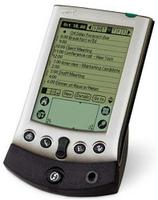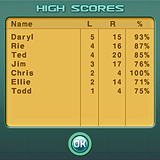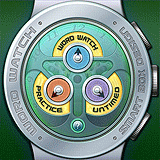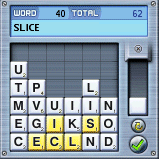
I started to think about the Palm and how much it has changed my life. For 13 years I created educational software, six years at The Learning Company then seven years at Edmark which was purchased by an Irish company named Riverdeep. Working for Riverdeep was a challenge because of all the time zones involved and the amount of coordination required between offices, especially meetings. It became clear that all the senior staff was having difficulty keeping up with constant meeting changes from the Dublin, Ireland and Boston, Mass. offices. I would awake in the morning to find a dozen meeting invites in Outlook. Half of them would be rescheduling or change of location or a new dial in number. It was considerable work just opening the invite reading it agreeing to it, writing down the meeting location and topic, then opening the next invite, etc. There had to be a better way and there was.
I came across a half dozen Palm Vs in the IT department, turned in by the sales staff. I borrowed one and started to experiment with it. I research its ability to synchronize with Outlook when an idea hit me. I hooked the Palm up to my PC and the next morning I quickly opened each meeting invite and agreed to the change. When finished I synchronized the Palm, and behold, all the meetings I needed to attend were on the Palm. This was huge. I just saved at least 15 to 20 minutes of reading and rescheduling. I got into the habit of returning to my desk between meetings and syncing my Palm, then going where the Palm told me to go. It was only a matter of days before I learned how to adjust the notes settings so now the meeting agenda was showing up on the Palm too. Then later I figured out how to add the contact list. I would now show up in meetings with the agenda. If someone wasn’t there and we needed to call them, I had their number. I was hooked on the Palm. Several weeks later I presented to management on the Palm and the other five Palm V’s were quickly appropriated.
In 2002 Edmark was closed, all 250 plus employees let go. I was asked to stay for another four months, which I did. With that chapter over I started to think about the future; what to do with myself. When thinking about my future and what I was passionate about, the Palm rose to the top of the list. I started Smart Box Design in February of 2003 and I have been making PDA software ever since.




